All images courtesy of Jonathan Daniel
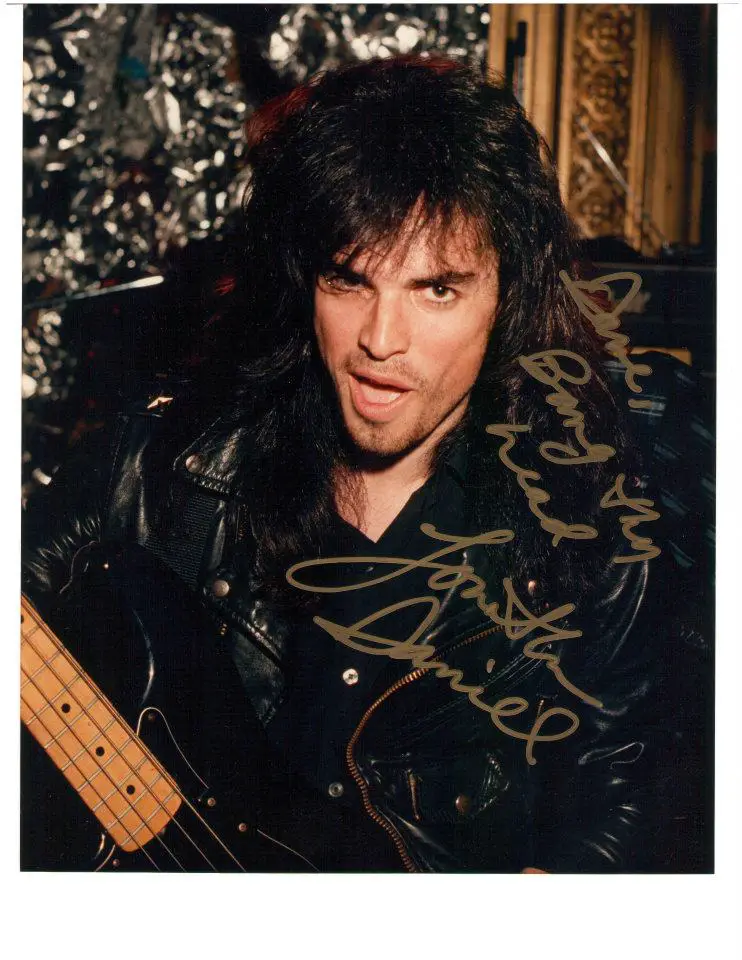
Jonathan Daniel has had a multi-layered career in Rock music. Starting from a young age, Daniel, along with his bandmates Kyle Vincent, and Gilby Clarke, formed Candy, a Glam Rock outfit that was highly influential on a burgeoning scene.
As the 80s moved forward, and Candy came to an end, Daniel hooked up with Ryan Roxie to form the Electric Angels, an underrated Rock band that had its early demos produced by the likes of Bruce Kulick, but sadly, the band fell victim to the sweeping Grunge scene, in the early 1990s.
Never one to be idle for too long, Daniel found a second life in music via Crush Music, a music management company responsible for the discovery of Fall Out Boy, and many other Emo and Pop Punk bands of the early 2000s and into today.
We recently caught up with Jonathan to dig into his long career in music. Among other things, we touch on his early influences, the formation of Candy, and the Electric Angels, as well as Jonathan’s innate ability to spot the next big thing in Pop Punk.
If you would like to learn more about Jonathan Daniel, or Crush Music, you can head over to their webpage, and dig in. Cheers.
Andrew;
Jonathan, I appreciate you taking the time today. How have you been holding up over the last year or so? What have you been up to?
Jonathan:
Pretty good all things considered. I lost a friend and someone I was a fan of early on in the pandemic, Adam Schlesinger. Not only was that tragic, but it changed my experience with the whole thing.
Andrew:
Before we dive into your professional career, let’s go back a bit. What first got you hooked on music?
Jonathan:
Like everyone my age, it was the radio to start. I loved the songs on the radio that didn’t sound like the other songs — “Killer Queen,” “Get It On,” “Space Oddity,” etc. and that got me into Glam, which lead to Punk Rock, which led to me starting bands.
Andrew;
Who were some of your early influences?
Jonathan:
I loved Bowie, T-Rex, Queen, Mott The Hoople, Sweet — most everything British and Glam. Then I got into Punk — The Ramones, Blondie, The Clash, Generation X…most of the 70s Punk scene.
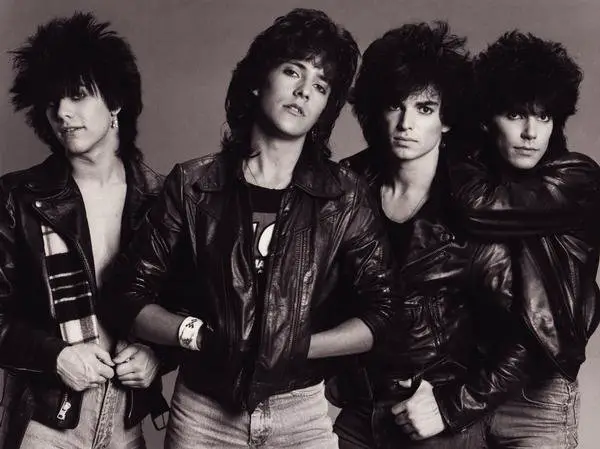
Andrew:
Going back now, take me through the formation of Candy. Who were your biggest influences at the time?
Jonathan:
I moved to LA to be in a Punk band. I wanted to be in a band like The Ramones meets Generation X — Pop Punk teenage anthems. I was at Punk night at a club called The Starwood, and I saw Nikki Sixx hanging out by the bar, and I decided right then, “I wanna be that guy.” I met John [Schubert] through a guitar player I’d met in an ad, Gordon Wall, who is still close friends with John. The first show I ever went to with John was the very first Mötley Crüe show opening for Y&T at The Starwood.
Gordon is a great guy, but his musical influences and mine were not a match, and I was young, cocky, and probably an asshole, so, I had no patience to try to make it work. We did a show under the name “Bang Bang” with the three of us, and a British singer named Ricci who wanted to be Bowie. After one show, I wanted to get a different guitarist. I met Gilby [Clark] through an ad in The Recycler. I loved him, his tone was incredible and his haircut was perfect. Ricci didn’t like the way he played, so, we didn’t move forward, but I kept in touch with Gilby. I went to high school with Kyle [Vincent] and convinced him that I had way more going on than I did, and to move down to LA from the Bay Area. We started doing shows with the three of us, and a guitarist named Geoff Rexx, who was still in high school (I wasn’t much older). Because Geoff was still in high school, he couldn’t be as dedicated as we were, so, we replaced him with Gilby. Geoff went on to form the Nymphs with Inger Lorre. He was a really good guitar player for his age, and also a good kid.
Andrew;
Whatever Happened To Fun? is an underrated Glam Rock gem. If you can, take me through the writing and recording of that record.
Jonathan:
We built a big following playing around LA. We were the youngest, and most Pop of the first wave of LA Metal (Quiet Riot, Ratt, Motley, etc), so we didn’t totally fit in, but we hustled hard. The songs were all written while building a following. The scene was so exciting that I was constantly writing, we probably had three albums worth of songs by the time we got signed. We made demos with Kim Fowley, and he taught us how the record business really worked. He was a very odd character, part brilliant, part insane. I owe him a lot — he was a great teacher at “Rock ‘N’ Roll High School.” Once we got signed, we chose Jimmy Lenner to produce the album because of The Raspberries. We went to Florida to make the album, and we had no idea what we were doing. We had barely been out of California ever and had only spent a couple of days in the studio on our demos, so, it was a real experience.
Andrew:
Ultimately, why do you feel that Candy didn’t hit? What led to the decision to dissolve the band?
Jonathan:
Our college radio rep at the label, Jack Isquith, said to me, “Here’s why you guys are fucked. I know that you wanna be a Pop version of the Lords Of The New Church, but the rest of label thinks you’re Wham.” I think that sums up why we didn’t hit pretty well. We fell in-between genres. Our A&R guy got fired the week the album came out, and that didn’t help. I don’t blame the label at all though. If I knew what I know now back then, we might’ve had a different outcome.
Kyle always wanted to be more Pop than the other three of us. When the record didn’t hit, we made a rash decision to let him go. It was not thought through, but we were kids, and no one stepped in to tell us it was a dumb idea. You can really hear the musical divide if you listen to Kyles’s new album vs Gilby’s new album.
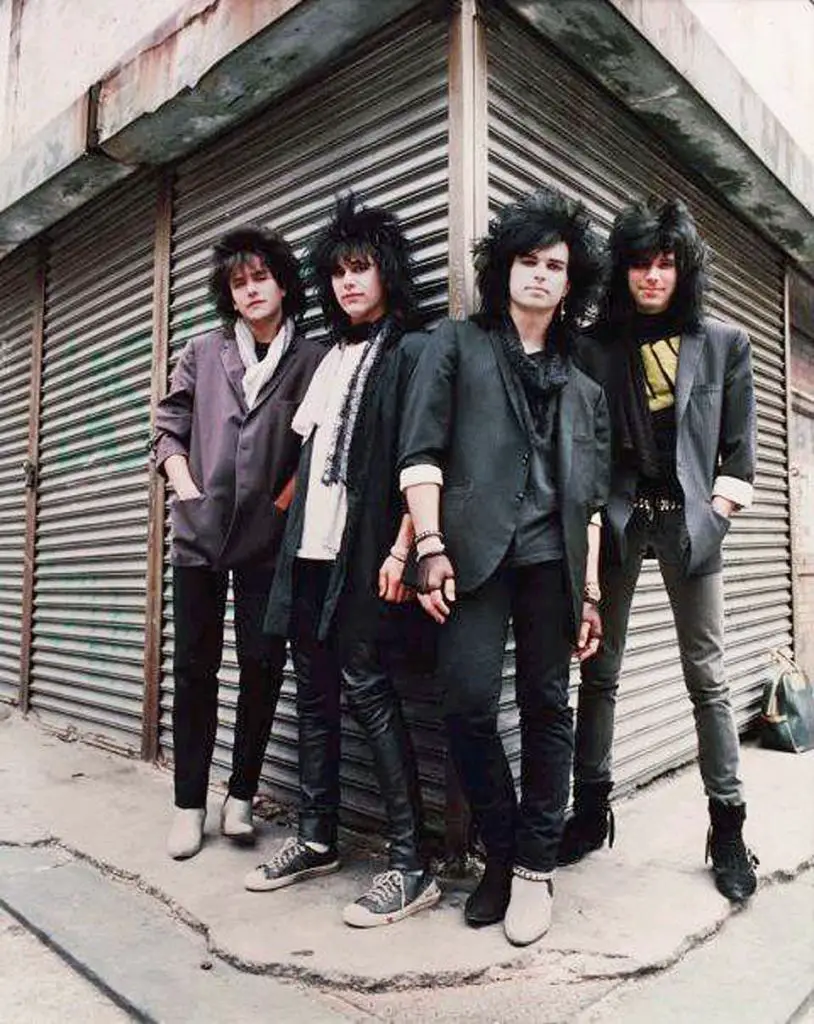
Andrew:
In the late 80s, you were one of the founding members of Electric Angels. Take me through the formation and origins of that band?
Jonathan:
We tried Gilby singing in Candy, and we couldn’t get a deal, so Gilby and I decided to split into two bands, Electric Angels, and Kill for Thrills, so we would not be seen as old news. Ryan had been playing with Candy with Gilby singing, so John and I, and Ryan [Roxie’ found Shane [Thomas Riggins], and started the band.
Andrew:
Electric Angels were notably produced by Bruce Kulick of KISS. How did you come into contact with Bruce, and how did he end up working with the band?
Bruce produced our first demo. Candy was managed by Howard Marks, who manages KISS, and that’s how we met Bruce. He’s a super nice guy. Paul Stanley called me right before the pandemic hit, and asked me to come to see his son play. That was a funny full-circle call. KISS were heroes of min., I just watched their two-part documentary on A&E. It’s fantastic if you haven’t seen it, especially the first part.
Andrew:
Electric Angels maintained the Glam Rock soul of Candy but incorporated a Hair Metal edge, which was prominent at the time. How did the sound of Electric Angels develop? Who were your biggest influences?
Jonathan:
At that time Hanoi Rocks and The Cult’s Electric album got a lot of play in our apartment. I think we wanted to distance ourselves from Candy, and Shane had a taste that was a bit darker, and more minor key.
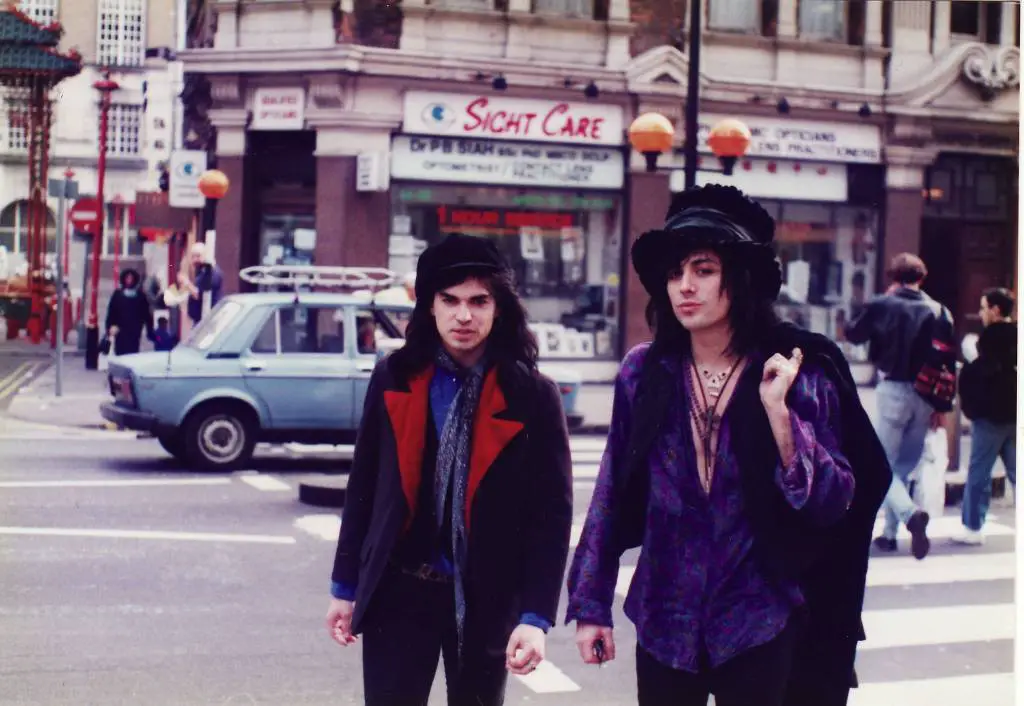
Andrew:
The band released its debut, Electric Angels, in 1990, but it got lost in the shuffle of bands at that time. Do you feel there was any particular reason the album didn’t receive the recognition it should have?
Jonathan:
I think the scene had come to the end of its run by then. We didn’t make an album that was particularly Metal, but it also wasn’t Alternative, so we fell a bit between genres again.
Andrew;
In 1992, the band recorded demos for what was to be its sophomore record, New York Times, but it went unreleased. Take me through why the record was shelved. What was the state of the band at that time?
Jonathan:
With the demos, some of them just four-track recordings to try to get another deal. We asked to be let go from our label, which was probably not a great idea.
Andrew:
Grunge moved in hard and fast in the early 90s, and it’s said it all but killed Glam and Hair Metal. Would you agree? If so, how much of an effect did it really have? What are your feelings on bands such as KISS, Poison, and Mötley Crüe “going Grunge,” so to speak?
Jonathan:
I think scenes run their course, and the great bands survive that but most of them don’t. The Grunge scene had a pretty similar run afterward. I thought the Glam bands trying to go Grunge was a mistake because their fans didn’t want them to do that, and Grunge fans didn’t want them to do it either. They were records for no audience essentially. No big band ever wants to feel their relevance going away, so it makes all the sense in the world that they tried it, but they probably shouldn’t have.
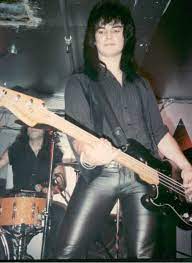
Andrew:
The 80s Glam scene is looked back upon with such reverence by those that were there. Looking back, was it really all that crazy? In retrospect, what are your fondest memories?
Jonathan:
It was an amazing time. The door of possibilities was wide open. I really have nothing but great memories of it. We all felt like we were going to get record deals and be huge stars. It’s an incredible feeling when you’re a teenager.
Andrew:
Moving forward, what led to the formation of Crush Music?
When Napster hit, I felt like the music business was going to change, and maybe I could be a part of the change. It was the first time I’d been excited about music since Candy really, just the idea that you could make your own luck was a dream. I had for the most part managed Candy, and Electric Angels up until we got signed, so I thought if I just found artists that were like me, I could do the job.
Andrew:
Take me through the discovery of Fall Out Boy? What has it been like moving out of the Glam Rock world and into the modern era of Pop Punk?
Jonathan:
When I started Crush and was looking for bands, I went to see a show in Jersey with Taking Back Sunday, Rufio, and Brand New because I liked Brand New’s demo. One thousand kids were singing along to every word and no labels there. It felt like the beginning of the LA Glam scene to me, so I started looking at every band in that scene, and that’s how I came across Fall Out Boy. They had a demo on mp3.com called Dead On Arrival that I really loved the lyrics of. A couple of small indie labels I was friends with also sent me the demos, and that’s how we started. Pete [Way] from the band is how I would’ve been if I was twenty years younger.
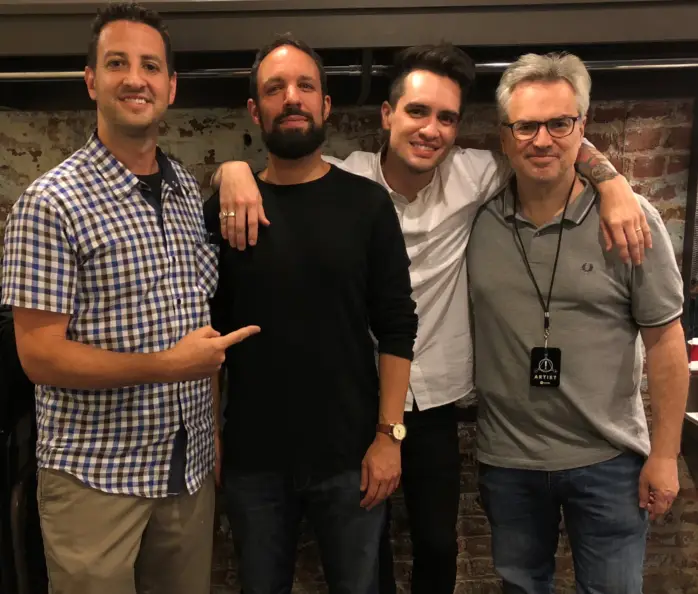
Andrew:
What other passions do you have? How do those passions inform your music, if at all?
Jonathan:
I still love Rock ‘N’ Roll. Music never lets you down.
Andrew;
In your opinion, what is the state of the music business these days? Should artists be hopeful? Scared? Both?
Jonathan:
Our Green Day/Fall Out Boy/Weezer tour was Billboard’s most attended tour of the year, and our Alanis Morrisette tour was the biggest tour by a female, so I’d be lying if I said anything other than great! If you mean for new artists, I think it’s an exciting time because there are no rules. You can make a song in your bedroom, and become wildly successful. You can’t expect anyone else to make people like your music, but if you can get people to like your music, it’s a fantastic time to be in it.
Andrew:
Last one. Will we ever see Candy or Electric Angels reform?
Jonathan:
Sometimes in life, it’s better to put the dice down, and walk away from the table.
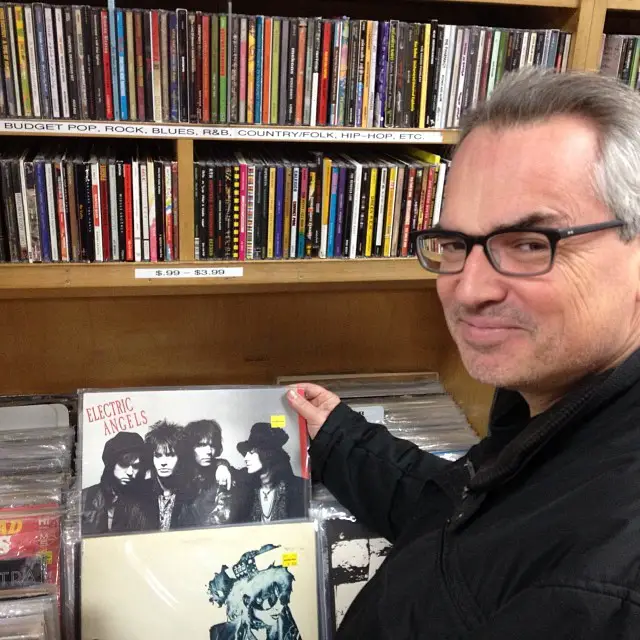
Interested in learning more about Candy and Electric Angels? Check out the link below:
Dig this interview? Check out the full catalog of VWMusic Interviews, by Andrew Daly, here: www.vinylwritermusic.com/interviews
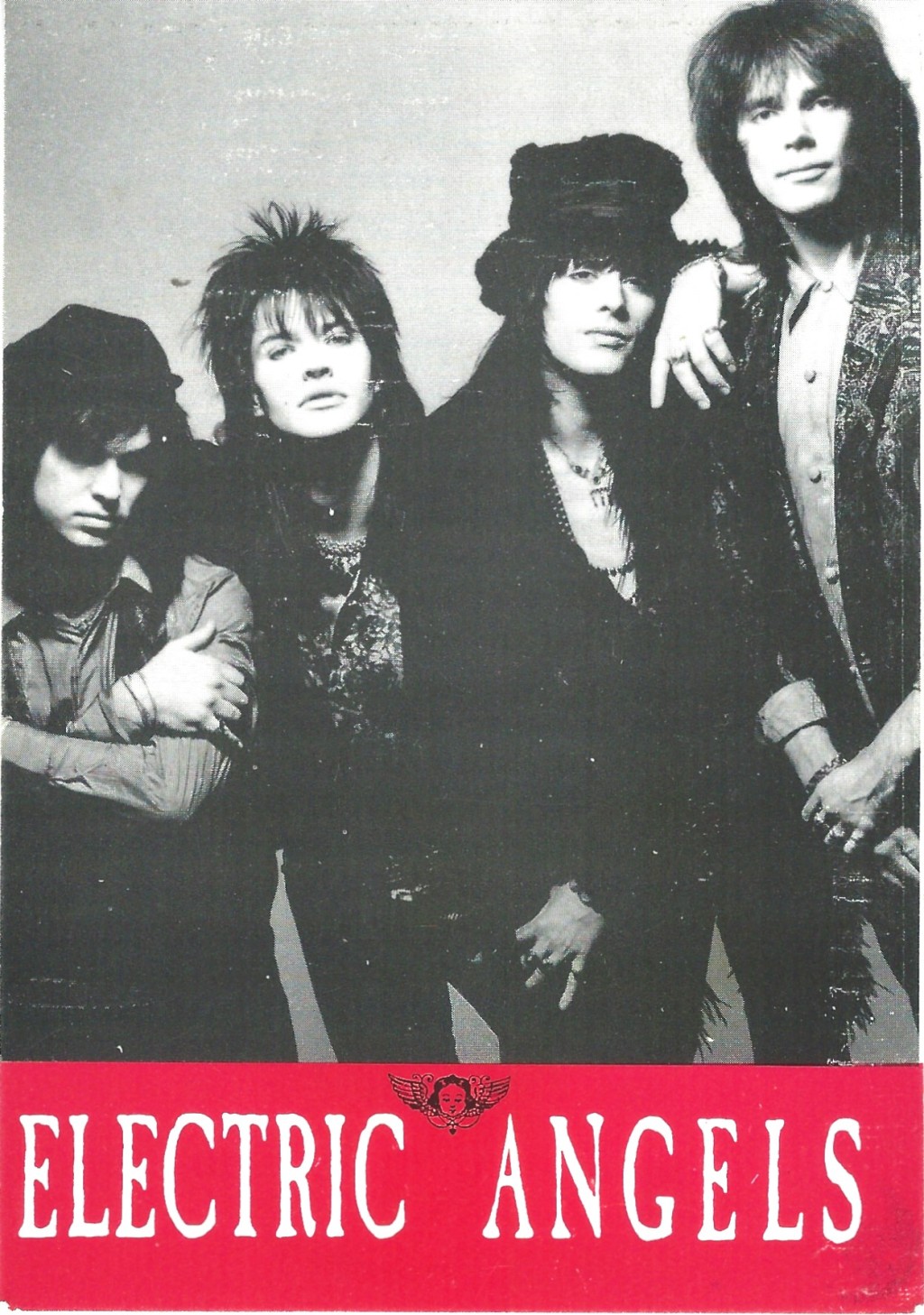




Leave a Reply